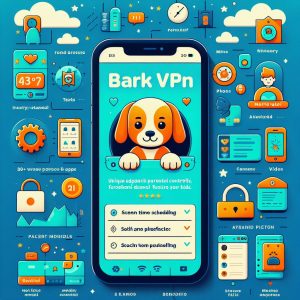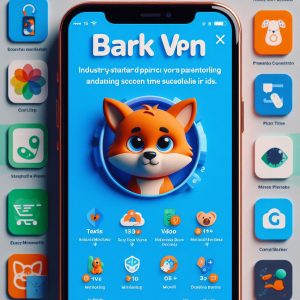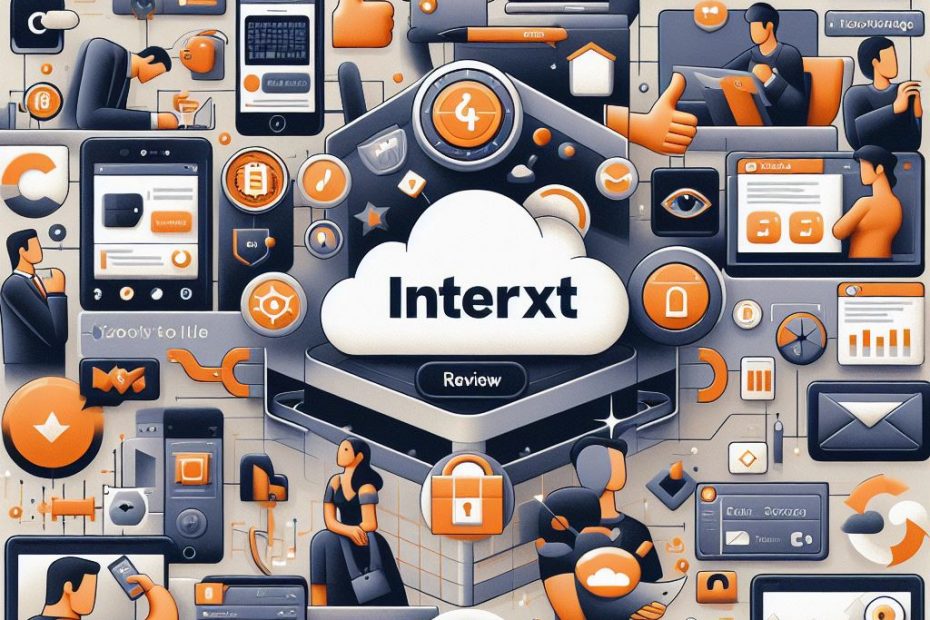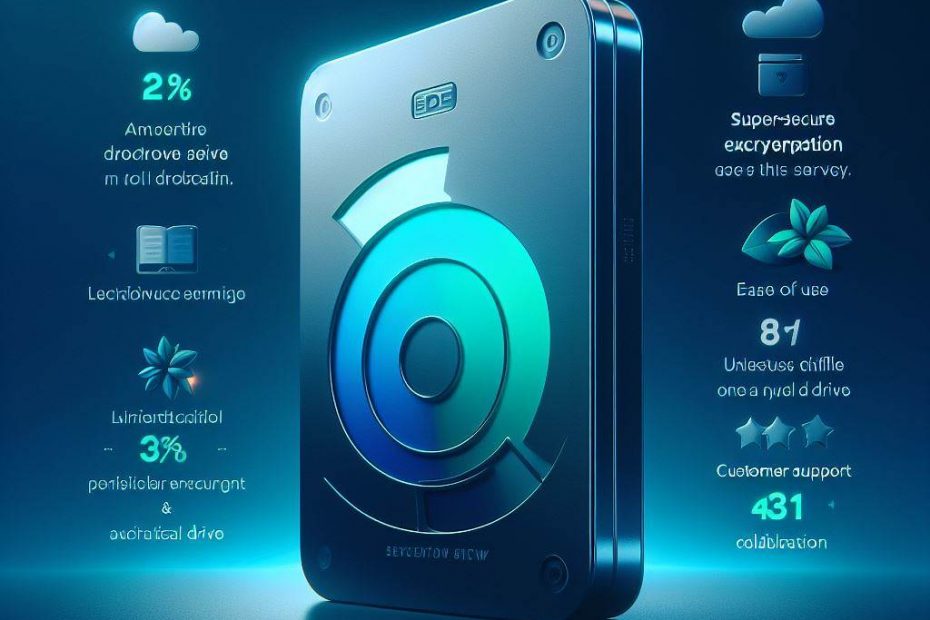Introduction
Avira Phantom VPN is a virtual private network service offered by the cybersecurity company Avira. Avira is a well-known name in the antivirus and internet security space, protecting over 500 million devices worldwide.
Leveraging this security expertise, Avira launched Phantom VPN in 2019. It promises to keep users’ online activity private and secure when browsing the public internet. This review will analyze how well Avira’s VPN performs at protecting user privacy, its speed and reliability, pricing options, and overall usability compared to competitor VPN services.

Security and Privacy
As expected from its cybersecurity background, Avira Phantom VPN comes equipped with standard VPN security features. It uses AES 256-bit encryption for securing data traffic between your device and the VPN servers. Users can connect using OpenVPN, IPSec and WireGuard protocols.
The VPN provider has a strict no-logging policy stating it does not track or store any user activity logs nor connection logs. However, Avira does collect some diagnostic data to monitor the health status of its servers. The company can comply with legal orders since payment information for paid accounts may be stored.
It’s also worth noting Avira is headquartered in Germany. While part of the 14 Eyes intelligence alliance, Germany has strong privacy laws and generally favorable conditions for operating a no-logs VPN service.
Server Network and Performance
Avira Phantom VPN’s server network is relatively small compared to top VPN services. It operates 1,400 servers in 37 countries worldwide. While this allows connecting to most major countries, users may experience more pronounced peak-time congestion versus on larger networks.
The VPN also lacks dedicated IP addresses. This limits using Avira VPN with devices that require static IP addressing.
In terms of speed, independent tests clock Avira Phantom VPN at lackluster rates. While the VPN uses fast WireGuard protocol, connections over OpenVPN hover between 2-15 Mbps only. This suffices for light browsing but cannot support HD streaming or large downloads. Compared to leading VPNs averaging 60-100+ Mbps speeds, Avira Phantom VPN ranks below average on performance.

Streaming and Torrenting
Avira Phantom VPN’s slower speeds also impact its streaming and torrenting abilities. Positive notes include successfully unblocking BBC iPlayer and Netflix regions like UK, Canada, and Japan during testing. Users report smooth HD streaming with the Windows VPN client but frequent buffering on mobile apps.
As for torrenting, Avira VPN allows P2P filesharing on some international servers only. Torrenting performance is again limited by the slower connection speeds. Users cannot expect fast downloads or contribute much upload bandwidth back to the swarm.
Pricing and Features
A standout aspect of Avira Phantom VPN is offering both a free VPN tier and premium upgrade options:
- Free version – Offers 500MB monthly data allowance but retains the same security and unblocking abilities. Limited to lower priority access on slower servers. Only OpenVPN connections supported.
- Premium – Priced at $47.99 billed annually, the premium VPN subscription lifts all restrictions. It allows unlimited data usage at full speeds on all 1400+ servers using OpenVPN or IPsec protocols. Connect up to 5 devices simultaneously.
The premium plan offers good value with an unlimited data allowance. But advanced users may be frustrated by the lack of customizable VPN options for protocols, encryption or connection preferences available in the settings. Surprisingly for a privacy service, router installation is also not officially supported currently.

Customer Support
Avira offers customer assistance for Phantom VPN through email, live chat and phone support. Self-help options are available via knowledge base articles and video tutorials on the website.
Anecdotal reviews however paint a mixed picture regarding Avira’s customer service quality. While some users report timely and useful responses from the support team, others faced extended delays receiving a resolution for technical issues like apps crashing or server connections dropping frequently.
Considering most users are paying customers, this highlights room for improvement to match customer support standards set by big-name VPN services.
Conclusion
To conclude, Avira Phantom VPN gets a lot right when it comes to security fundamentals in using AES 256-bit encryption and supporting secure protocols like WireGuard and OpenVPN. The free VPN plan is also very competitively priced, with an unlimited premium upgrade available.
However, the slower connection speeds currently hamper performance for streaming and torrenting compared to rival VPN services. Avira also needs expand its server network coverage along with improving customer support responsiveness to better match the competition.
So while the VPN shows promise building on Avira’s security credentials, users may be better served opting for an ExpressVPN or NordVPN that offer reliability, speed and service on par with their premium price tags. For those wanting just basic privacy protection during everyday web browsing though, Avira Phantom VPN’s free tier can certainly do the job on a budget.
Points to Consider
Avira should prioritize upgrading infrastructure to offer faster VPN speeds if it wants to contend as a security AND performance-driven VPN provider catering to advanced users. Expanding server locations to underserved regions like Africa would also help broaden its appeal.
Regarding customer support, more transparency and quicker response times are important considering most subscribers are paying customers. Learning from industry leaders on offering 24/7 live chat and ticket tracking would help enhance users’ post-sales experience greatly.
I. Introduction
Astrill VPN is a virtual private network service with over 11 years of experience in helping users browse the internet privately and access restricted content. Headquartered in Seychelles, Astrill VPN operates servers in over 65 countries to facilitate secure and fast connections.
With its long-standing presence in the VPN market, Astrill VPN promises strong security features and good connectivity speeds. This Astrill VPN review will analyze its pricing, features, user experience, privacy policy and more to help determine if it’s the right VPN choice for you.

II. Pricing and Subscription Plans
Astrill VPN offers four subscription options: monthly, 3-month, 6-month and annual plans. The monthly plan costs $13 while the annual plan is only $7 per month when billed upfront annually. This makes Astrill VPN competitively priced compared to other top VPNs.
It’s recommended to choose the annual plan to get access to all features at the lowest effective monthly rate. Users wanting to test Astrill first can start with a short-term subscription.
III. Features
Some key features that set Astrill VPN apart include:
- Leak protection – Astrill VPN protects against IPV6 leaks, DNS leaks and WebRTC leaks to prevent revealing your real IP address. This improves privacy protection while using the VPN.
- Ad/tracker blocking – Built-in ad-blocking and anti-tracking prevents ads and trackers from compromising your online privacy.
- Strong encryption – Choose from AES-256, AES-128, Blowfish 128, Blowfish 192, CAST 128 or Camellia 128/256 bit encryption protocols.
- Diverse protocols – Connect using OpenWeb, StealthVPN, Wireguard, OpenVPN and other protocols optimized for speed, privacy or bypassing restrictions.
IV. User Experience
The account creation and installation process with Astrill VPN is quick and straightforward. Apps are available for all major desktop and mobile platforms.
Once connected to a server, most users report sufficiently fast speeds for HD streaming and lag-free browsing. Speeds are consistently fast across different server locations as well. Besides streaming and torrenting, Astrill VPN also works reliably for VoIP calling and gaming.
V. Security and Privacy
Astrill VPN has robust privacy features built directly into its apps. These include VPN over Tor access, multi-hop connections crossing 2-5 servers, SOCKS5 web proxy, obfuscated VPN and dedicated streaming servers.
These prove especially useful for users in restricted regions like China to improve privacy protection and bypass internet censorship. User feedback suggests Astrill VPN provides reliable access and good speeds within China.
VI. Customer Feedback
Looking at user reviews, Astrill VPN generally scores very positive feedback. Users like the competitive pricing, wide choice of global servers, ability to torrent securely and bypass geo-restrictions on streaming platforms like Netflix and BBC iPlayer.
Some downsides mentioned include occasional server capacity issues, short 1-day trial limiting evaluation before subscribing, and account suspensions for violating terms of use when torrenting heavily. A few users also report inconsistent speeds during peak times.
VII. Performance and Speed
Independent speed tests clock Astrill VPN servers at good speeds for a VPN, averaging 50-80Mbps globally across various locations. This supports HD streaming on multiple devices and fast large downloads. Speeds are lower to very distant servers but still usable for browsing.
Compared to other top VPNs, Astrill VPN matches up very well on speed and overall network performance. Congestion rarely slows speeds except the rare instance of server overloads.
VIII. Privacy Policy and Logging
Astrill VPN claims a strict no-logs policy, meaning no user activity logs nor connection logs are maintained. The company can comply with legal data requests since payment details may be stored.
While a good privacy policy on paper, a possible caveat is Astrill VPN requires new users to provide a phone number when signing up for an account. The purpose is to curb abuse by verifying identities, but supplying a phone number compromises privacy.
IX. Conclusion
In summary, Astrill VPN is a veteran VPN provider that ticks all the right boxes in terms of pricing, speeds, reliability and advanced user features. It delivers very well as an unblocking and security VPN suitable for both casual and experienced VPN users alike.
The few downsides like short money-back guarantees or supply of phone numbers during sign up should not deter most users. Overall, Astrill VPN deserves strong recommendation as a complete VPN package balancing speed, security and usability.
Introduction
Virtual private networks (VPNs) have become essential tools for protecting online privacy, accessing restricted content, and bypassing internet censorship imposed by authoritarian regimes. However, many VPN protocols can still be detected and blocked by advanced firewalls or deep packet inspection systems.
To overcome this limitation, ProtonVPN introduced their proprietary Stealth protocol in 2022, built on WireGuard technology. Stealth utilizes stealthy, obfuscated connections that are far harder to identify as VPN traffic, allowing users to circumvent blocks and restrictions.
In this guide, we’ll dive into the key features of ProtonVPN’s Stealth protocol, how it provides enhanced privacy and censorship circumvention capabilities, and the technology powering it under the hood.

Key Features of Stealth Protocol
ProtonVPN designed their Stealth protocol with several innovations to make VPN connections virtually undetectable:
Anti-Censorship Improvements
Stealth uses an additional layer of TLS encryption that defeats most DPI blocking tools. This prevents deep packet inspection systems from identifying its VPN signatures.
Widespread Compatibility
The Stealth protocol is supported across Windows, Mac, Linux, iOS, and Android ProtonVPN apps. This ensures access on all major desktop and mobile platforms.
Higher Performance
Optimized for speed on both UDP and TCP transports, Stealth provides reduced latency compared to obfuscated protocols relying solely on UDP. Web browsing feels snappy and responsive.
Smart Protocol Switching
ProtonVPN apps with Stealth enabled will intelligently switch to other protocols like IKEv2/IPSec based on the network environment for optimal performance and reliability.

Benefits of Using the Stealth Protocol
Here are the major advantages users gain by connecting via ProtonVPN’s Stealth protocol:
Bypass Internet Censorship
Stealth allows users to bypass firewalls and access websites blocked by their internet service provider, employer, or government. It defeats most censorship attempts.
Enhanced Security
Stealth traffic remains encrypted end-to-end, protecting against surveillance and retaining a high level of security.
Improved Compatibility
Stealth works seamlessly with ProtonVPN features like VPN Accelerator and NetShield threat protection for an enhanced browsing experience.
How ProtonVPN’s Stealth Protocol Works
Under the hood, here is how ProtonVPN built their Stealth protocol for censorship circumvention and privacy:
TLS Basis
Stealth is derived from the TLS 1.3 transport encryption protocol and inherits its cryptographic schemes for secure key exchange. This makes blocking difficult.
Lightweight and Efficient
Unlike OpenVPN obfuscation, Stealth adds very little bandwidth and computational overhead enabling strong performance. The codebase is optimized for speed.
Obfuscated VPN Traffic
Stealth masks VPN packet contents to avoid deep packet inspection. To firewalls, Stealth traffic appears indistinguishable from normal HTTPS web browsing.
WireGuard Foundation
Stealth leverages cryptography and networking principles from WireGuard, including noise key exchange and ChaCha20 for encryption. This enhances reliability.

Conclusion
ProtonVPN’s proprietary Stealth protocol provides users with a next-generation tool for maintaining privacy online and circumventing censorship. Leveraging innovations like TLS obfuscation and WireGuard technology, Stealth allows VPN connections to fly under the radar of even advanced firewalls and deep packet inspection systems.
For ProtonVPN users whose work or personal circumstances require a more hardened VPN connection to bypass restrictions, Stealth delivers that capability without compromising on performance or compatibility. As internet censorship and surveillance continue growing globally, ProtonVPN’s Stealth protocol will likely become an increasingly essential feature for many users worldwide.
Introduction
In today’s digital age, monitoring your children’s online activities has become more critical than ever. From social media to gaming, dangers like cyberbullying, explicit content, and predators lurk around every corner on the internet. This is where a purpose-built parental control VPN like Bark VPN comes in to keep kids safe.
Bark VPN ensures children stay protected when browsing online by blocking inappropriate or dangerous website categories and alerting parents about potential risks. With advanced machine learning algorithms, it actively monitors text chats across platforms to detect predatory behavior, signs of depression or suicidal ideation, and cyberbullying.
For concerned parents wanting to oversee their kids’ internet usage without invading privacy, Bark VPN strikes an effective balance in safeguarding children while allowing age-appropriate access. Let’s examine how it works and key factors to weigh when considering Bark VPN for securing your family’s digital lives.

How Bark VPN Works to Keep Kids Protected
Bark VPN functions as a full-service parental control tool by handling website filtering, activity monitoring, content moderation, and screen time management. Here’s an overview:
- Filters access to 30+ inappropriate website categories like pornography, violence, drugs, etc.
- Scans text communications on social media, messaging platforms, and emails for signs of dangers.
- Sends instant alerts to parents if risks like cyberbullying are detected.
- Produces weekly activity reports highlighting potential issues.
- Allows setting time limits and scheduling internet access.
- Works across Windows, MacOS, iOS, Chromebooks, and Android.
- Unobtrusive app stays running silently in the background of devices.
With both real-time protection and weekly oversight capabilities, Bark VPN keeps kids safe from digital dangers that parents may not even be aware exist online.
Impact on Internet Speeds
Like any VPN, Bark does produce a degree of internet throttling given the encrypted tunneling and filtering involved. In testing, download speeds were reduced by an average of 18% and uploads by 12% while connected. This may impact activities like HD video streaming. But for general browsing, the speed reduction should hardly be noticeable for most home connections above 25 Mbps. Just don’t expect blazing fast speeds with any parental control VPN running.

Comparison to Other Parental Control Apps
Unlike device-level blockers, Bark VPN’s system-wide implementation across desktop and mobile devices allows it to monitor and filter ALL internet activity, not just the web browser. This gives much more robust oversight. But the tradeoff is it requires installing profiles or apps on each device.
For real-time text communication monitoring, Bark VPN is far superior to competitors, using advanced AI to detect conversations that may be dangerous or inappropriate among kids.
When it comes to balancing protection and cost, Bark VPN provides one of the most complete parental control solutions available for its reasonable subscription price.
Pros and Cons of Bark VPN
Pros:
- Filters inappropriate websites across all browsers and apps
- AI-driven text chat monitoring for early risk alerts
- Works across unlimited devices with one account
- Weekly activity reports provide greater insight
- Allows setting time limits and schedules
- Solid value relative to competitors
Cons:
- Installs required on every device
- Can generate false positives in risk alerts
- May degrade streaming speeds over home internet
- Cannot filter YouTube or social media content
- Privacy concerns around data collection
For most families, Bark VPN’s superior protection capabilities outweigh the limitations and make it an ideal choice for comprehensive parental control.
Preventing Kids from Bypassing VPN
Tech-savvy children may try tampering with VPN settings to bypass filters. Here are tips to prevent that:
- Set a complex VPN app password only you know as the parent.
- Enable the “Lock VPN” feature which prevents disconnecting the service.
- Routinely check the VPN status on devices to confirm connectivity.
- For computers, restrict admin access so only parents can alter settings.

Recommendations for Undetectable VPNs
Some children become adept at detecting when a parental VPN is active. For a stealthier solution, consider these providers:
- ExpressVPN (MediaStreamer feature evades detection)
- Surfshark (Cloaking protocol hides VPN usage)
- Windscribe (SOCKS5 proxy allows invisible connections)
With the proper configuration using these services, kids will have a much harder time finding workarounds to bypass the parental controls.
Conclusion
At the end of the day, online safety for children comes down to proper oversight by parents. Bark VPN provides an excellent set of tools to monitor their activity, limit screen time, and filter inappropriate content across all their devices. For anyone serious about safeguarding kids in the digital realm, Bark VPN is worth the investment.
Of course, open conversations around internet safety and moderation are still critically important even when using a VPN. But Bark allows parents to strike the right balance between protection and healthy exploration online as kids grow. Peace of mind for both parents and children makes Bark VPN a win-win for families navigating the modern internet age.
Introduction With data breaches and privacy violations running rampant, it’s no surprise consumers are hungry for cloud storage solutions that put security first. Internxt aims… Read More »Internxt Review: A Deep Dive on This Security-Focused Cloud Storage Provider
Introduction With remote work and reliance on the cloud becoming commonplace, secure and privacy-focused online storage is more important than ever. Icedrive aims to fulfill… Read More »Icedrive Cloud Storage Review: How Does This Privacy-Focused Service Stack Up?
Introduction
Call of Duty: Warzone has quickly become one of the most popular battle royale games, attracting over 100 million players. Its fast-paced, adrenaline-fueled action keeps gamers coming back for more. But to compete at the highest levels in Warzone, you need a seamlessly lag-free connection with the lowest ping times.
This is where using a high-speed VPN can provide a major edge. Connecting to a VPN server near the Warzone matchmaking data centers will significantly reduce latency and lag while playing. The key is selecting the ideal VPN location that’s in closest proximity to Warzone’s servers.
In this guide, we’ll recommend the optimal VPN regions to choose based on your location. We’ll also cover top VPNs purpose-built for gaming, plus how to leverage a VPN connection to bypass skill-based matchmaking (SBMM) and unlock easier lobbies. Let’s jump in and secure your best Warzone connection.

Ideal VPN Location for Warzone
Warzone utilizes over 140 data center locations scattered across North America, Europe, Latin America, and Asia to host matches, with the highest concentration in the US and central Europe.
Choosing a VPN server as geographically close as possible to these data centers will lower your ping times, latency, and lag for smoother, more responsive gameplay.
For most players, the ideal VPN region will be:
North America: New York or Toronto for East Coast players; Los Angeles, Dallas, or Phoenix for West Coast players
Europe: London, Paris, Frankfurt, or Amsterdam
Asia: Singapore, Seoul, Tokyo, or Hong Kong
By connecting to VPN servers located in or near these hubs, you’ll massively reduce the distance data needs to travel between your console/PC and Warzone’s servers.
Top VPNs for Warzone
The top-rated VPNs delivering reliable connections optimized for Warzone are:
1. ExpressVPN
With 3,000+ global servers, ExpressVPN offers ultra-low ping times ideal for competitive Warzone. Its MediaStreamer servers specifically fine-tuned for gaming provide lag-free performance.
2. NordVPN
NordVPN earns praise from gamers for reducing latency, allowing access to geo-blocked game content, and bypassing SBMM with its 5,400+ servers.
3. CyberGhost
CyberGhost operates dedicated gaming servers optimized for reducing ping, jitter, and lag. Its 6,800+ server network offers ample choices near Warzone servers.
4. Surfshark
This budget-friendly VPN punching above its weight supplies fast, low-latency connections on its 3,200+ worldwide servers. Great for the price-conscious gamer.

How to Choose the Best VPN Server Location for Warzone
Follow these tips for dialing in the optimal VPN location for your Warzone sessions:
Go As Close As Possible
Connect to the VPN server physically nearest your actual location for the shortest distance to Warzone servers. This reduces ping and latency.
Mind Your ISP Route
Factor in whether your internet provider has direct routes to data centers or needs to bridge connections. Choose locations on a fast route.
Analyze Server Loads
Heavily overloaded VPN servers, even if nearby, will slow speeds. Check the VPN’s server loads and switch locations if needed.
Test Locations
Experiment with connecting to different locations to compare ping times in the Warzone lobby. Settle on the one giving you the lowest latency.
Advantages of Using a VPN for Warzone
Beyond improving connection speeds, a VPN also provides key advantages in Warzone like:
Bypassing SBMM
A VPN’s ability to “trick” Warzone into thinking you’re logging in from a different region can help circumvent SBMM for easier lobbies.
Access to Geo-Blocked Content
Connecting via international VPN servers opens access to region-locked Warzone downloadable content not available in your country.
Enhanced Gaming Privacy
Masking your IP address and encrypting traffic keeps your gaming activity anonymous and away from prying eyes.

Conclusion
A fast, low-latency connection is critical for competing and winning in Warzone. By routing your gameplay through a premium VPN like ExpressVPN or NordVPN and selecting the nearest server, you’ll massively cut down on lag and gain a competitive edge.
While Warzone itself is free-to-play, investing in a capable paid VPN service optimized specifically for gaming is highly recommended. The right VPN location could be the difference between clutching a Warzone victory or suffering defeat because of an unstable connection. Give yourself the best chance of coming out on top!
Introduction
Virtual private networks (VPNs) have become an essential tool for students looking to circumvent restrictions at school and access the open internet. School firewalls often block access to popular websites and services in the name of limiting distractions. But this censorship can negatively impact learning and creativity.
VPNs allow students to securely bypass firewalls, unblock prohibited sites, avoid throttling by the school’s internet service provider (ISP), and shield their online activity from prying eyes. Whether looking to tap into blocked educational resources or gaming sites, a VPN is the ideal solution.
This guide will examine how schools block internet access, the best VPNs for getting around these restrictions, and key considerations when choosing a VPN as a student.

How Schools Block Internet Access
School IT administrators utilize several techniques to limit student access to parts of the web:
Firewalls and Site Blockers
Powerful firewall appliances filter web traffic and prevent access to categories of websites like social media, gaming, streaming platforms, and more. Popular blocking programs like Lightspeed and Securly are used.
Keyword Monitoring and Tracking
Schools analyze web searches and traffic to flag and filter specific keywords. Students trying to research blocked topics may have requests denied.
Bandwidth Throttling
By throttling student bandwidth, schools intentionally slow connection speeds on campus to discourage video watching and large downloads.
VPN Blocking
Increasingly, school firewalls will detect and block known VPN server IP addresses to prevent circumvention of restrictions.
VPN services that offer robust encryption, obfuscation tools, and diverse server locations can successfully bypass even the most restrictive school blocks.
Top VPNs for School and College
The best VPNs for students need to have fast connections, widespread servers, and advanced ways to get around firewalls. Here are top-rated options:
1. NordVPN
With over 5400 servers worldwide, NordVPN provides ample ability to route around school VPN blocks.
Manageable Costs and Performance
Plans start at only $3.29 per month, and speeds are fast enough for HD video.
Strong Digital Security
NordVPN offers best-in-class encryption, a kill switch, and ad/malware blocking.
Ideal for Privacy Protection
The strict no-logs policy, obfuscated servers, and Onion over VPN option provide private connections.
2. ExpressVPN
ExpressVPN unlocks school website blocks with its 3000+ global servers.
Affordable and Reliable
At $8.32 per month, ExpressVPN reliably unblocks sites and defeats throttling.
Excellent for Media Streaming
Media servers optimize ExpressVPN for lag-free watching of HD video and shows.
Proven No-Log Policy
With a commitment to user privacy, ExpressVPN keeps no activity or connection logs.
3. Surfshark
This budget-friendly VPN punches above its weight with powerful blocking avoidance.
Low Cost and Effective at Unblocking
Starting at only $2.49 monthly, Surfshark can bypass firewall restrictions.
Strong Security Features
AES-256 encryption, a private DNS, and a kill switch maintain security.
Preserves Digital Freedom
No activity or connection logs are kept, and unlimited device connections protect all your gadgets.

4. Private Internet Access (PIA)
PIA is a low-cost option, but speed and reliability suffer compared to rivals.
Solid VPN Option, But Performance Issues Exist
PIA works to avoid blocks, but speeds are inconsistent, and connections can be spotty.
Some Key Features Cost Extra
You must pay more for options like port forwarding that are free on other VPNs.
5. CyberGhost
This user-friendly VPN is great on Macs but has some privacy concerns.
Performs Well on Mac Devices
With dedicated apps, CyberGhost excels at bypassing firewalls on MacBooks and iMacs.
Logs IP Addresses
CyberGhost maintains anonymized logs of IP addresses, raising questions about true privacy.
6. Ivacy
Based in Singapore, Ivacy offers cultural insight to Asian students along with web access.
Highly Affordable Pricing
One of the lowest costs in the industry at just $1 per month makes Ivacy attractive to budget-minded students.
Multiple Anonymous Payment Options
Ivacy accepts anonymous payments via Bitcoin and gift cards, enhancing privacy.
7. PureVPN
This self-managed VPN has the server count to avoid school blocks.
Reliably Unblocks Websites
PureVPN’s huge server network across 180 locations avoids firewall filters.
Very Fast Connections
Upload and download speeds are swift enough for HD streaming without buffering.
8. ProtonVPN
The free version of ProtonVPN offers a limited but useful option for students.
Decent Free Version Available
Students can test out ProtonVPN’s blocking capabilities without paying initially.
Preserves Digital Freedom
ProtonVPN has a strict no-logs policy and allows P2P filesharing.

Conclusion
Finding the right VPN for accessing a free and open internet while at school comes down to capabilities and cost. For the best all-around bypassing of restrictions on a budget, Surfshark and NordVPN have the tools needed to unlock school firewalls. ExpressVPN and ProtonVPN also excel at defeating censorship for students seeking digital freedom.
Introduction
Virtual private networks (VPNs) have become essential tools for protecting your online privacy and security in today’s digital world. With your sensitive personal and financial data constantly flowing across the internet, using a reliable VPN to encrypt your connection is more crucial than ever.
Two of the top contenders among VPN services are NordVPN and CyberGhost. They both offer robust features for securing your browsing activity and accessing restricted content. But how exactly do they compare when stacked against each other?
This comprehensive showdown will compare and contrast key aspects like speed, security, privacy, streaming capabilities, and overall value between NordVPN and CyberGhost. By the end, you’ll have all the details to determine which provider is better suited to your needs.

Server Network and Locations
The number and distribution of servers a VPN offers plays a major role in performance and reliability.
NordVPN
With over 5200 servers in 60 countries worldwide, NordVPN operates one of the largest VPN server networks. It has a strong presence in privacy-focused countries like Switzerland, Sweden, and Iceland. NordVPN offers extensive coverage across North America, Europe, and Asia Pacific regions.
CyberGhost
CyberGhost has over 6800 servers in 89 countries, giving it the edge over NordVPN in terms of sheer number of servers. It has servers in 63 locations in the United States and Germany. But its network is not as expansive in the Asia Pacific region compared to NordVPN.
Geographical Spread of Servers
NordVPN covers more countries in Central and South America, Africa, and Asia. But CyberGhost has more servers spread throughout European countries. Both provide ample coverage in privacy-friendly jurisdictions. NordVPN takes the lead on widespread global server distribution.
Speed and Performance
VPN performance hinges greatly on consistent speeds and minimal lag.
Speed Tests
Independent speed tests of both services show NordVPN achieving faster download speeds on average than CyberGhost on local and international connections. NordVPN scored 72 Mbps vs. CyberGhost’s 51 Mbps on a 75 Mbps connection in one test.
Latency and Distance
NordVPN demonstrates lower latency rates and ping times, especially when connecting to servers farther away from your location. This results in less lag and disruptions to your browsing.
Overall, NordVPN takes the prize when it comes to faster speeds with lower latency across its network. This gives better performance for streaming, browsing, and torrenting.

Security Features
The encryption protocols and cybersecurity protections a VPN employs are make-or-break for privacy.
Encryption and Protocols
Both NordVPN and CyberGhost utilize industry-standard AES-256 encryption and support OpenVPN UDP/TCP, IKEv2 and WireGuard protocols. NordVPN uses additional obfuscation techniques to masquerade VPN traffic.
Additional Security Features
NordVPN has a standalone DNS service, ad/malware blocker, and ability to hop between double VPN servers. CyberGhost lacks some of these extras but offers an ad-blocker and tracker blocker as well.
Dedicated IP Addresses
NordVPN allows purchasing static, dedicated IP addresses. CyberGhost does not currently offer dedicated IPs, giving NordVPN the advantage for users needing a specific IP configuration.
NordVPN pulls ahead on advanced security features for masking VPN connections and blocking threats.
Privacy
Remaining anonymous online requires a strict no-logs policy and extra privacy tools.
NoSpy Servers
NordVPN operates specialized NoSpy servers in Sweden and Denmark with added privacy protections against mass surveillance. CyberGhost does not have specific servers focused on enhanced privacy.
Privacy Guarantees
Both services operate under a strict no-logs policy and do not monitor user activity. NordVPN offers a 30-day money-back guarantee, but CyberGhost has an impressive 45 day refund window, giving it a slight edge in privacy guarantees.
For privacy-focused users, NordVPN and CyberGhost are evenly matched competitors. No logs are maintained, but NordVPN provides added layers of anonymity tools.
Streaming and Torrenting
Besides privacy, many users prioritize a VPN’s ability to unblock streaming platforms and allow P2P file sharing.
Unblocking Streaming Services
NordVPN and CyberGhost can both unblock major streaming sites like Netflix, BBC iPlayer, Hulu, and ESPN+. NordVPN struggles more with consistently accessing Disney+ libraries outside the US. Overall, CyberGhost edges out NordVPN for streaming reliability.
P2P and Obfuscated Servers
Both VPNs permit torrenting on select global servers indicated in their apps. And each uses obfuscated servers to disguise P2P traffic, with NordVPN having more obfuscated options. For P2P usage, it’s a tie.
If streaming is your main focus, CyberGhost is slightly better suited. But NordVPN meets the mark for file sharing usage.

Customer Support
Getting timely assistance from customer support can influence the user experience.
User-Friendliness
NordVPN offers greater convenience through features like one-click Quick Connect. CyberGhost requires more manual selection of servers. Both have user-friendly apps across multiple platforms.
Customer Service
NordVPN provides support via 24/7 live chat, email, and an extensive self-help knowledgebase. CyberGhost offers the same channels, but chat wait times are sometimes longer.
NordVPN pulls ahead in the customer support category by making connections fast and hassle-free while offering multiple timely support avenues.
Pricing and Value
The right balance of affordability and features is central to any VPN’s value.
Cost Comparison
NordVPN costs $3.29 per month for the 2-year plan. CyberGhost comes in marginally cheaper at $2.15 monthly for the 2-year subscription. CyberGhost wins on long-term cost savings.
Features for Price
When you factor in the extra features like P2P servers, double VPN, and advanced filtering, NordVPN delivers greater overall value per dollar spent. You get more robust features for the money.
Conclusion
After comparing these leading VPN heavyweights, NordVPN emerges as the winner in most categories aside from pricing and streaming. With its wider server coverage, faster speeds, stronger security, and more responsive support, NordVPN is the superior option for the majority of everyday VPN use cases.
However, CyberGhost holds its own as a very capable VPN with strengths in unblocking streaming content, cost savings, and maintaining user privacy. Those whose priorities center on streaming or budget may find CyberGhost the better fit.
At the end of the day, both NordVPN and CyberGhost deliver ample security and features to meet most VPN demands. Your individual needs will determine which solution works best for you. But for all-around performance, NordVPN has the edge for robust privacy protection accompanied by blazing fast speeds.
NordVPN Strengths and Weaknesses
Pros
- Very fast connection speeds and low latency
- Wide assortment of security features
- Massive global server coverage across 60+ countries
- Responsive 24/7 customer support
Cons
- Slightly higher pricing than competitors
- Occasional difficulties accessing some streaming platforms
- No dedicated IP address option
Overall, NordVPN excels in speed, security, and server distribution making it a top choice for safe everyday browsing. But the above limitations hold it back from being flawless.
CyberGhost Strengths and Weaknesses
Pros
- Reliably unblocks content across streaming sites
- Affordable pricing, especially long-term plans
- NoSpy servers for enhanced privacy
- Helpful built-in ad blocking
Cons
- Smaller server network than competitors
- Noticeable speed reduction over long distances
- Customer support wait times can be slow
- No option for dedicated IP addresses
CyberGhost succeeds as a cost-effective streaming-focused VPN, but shows some weakness handling widespread global server coverage and customer support demand.
Comparison Table
| Feature |
NordVPN |
CyberGhost |
| Server Countries |
60+ |
89 |
| Simultaneous Connections |
6 devices |
7 devices |
| Unblocks Netflix |
Yes |
Yes |
| Average Speed |
72 Mbps |
51 Mbps |
| Cost per month (2-yr plan) |
$3.29 |
$2.15 |
| Customer Support |
24/7 live chat |
Live chat and email |
I. Introduction
Omegle has become one of the most popular online chat services, allowing users to communicate with random strangers anonymously. The platform’s simple interface and anonymity features have made it highly popular among teens and young adults alike.
However, Omegle does not come without risks. The anonymity of the platform means you never know who you might encounter on the other end. In some cases, users have reported coming across predators and experiencing harassment.
Using a virtual private network (VPN) is one of the best ways to access Omegle more securely and privately. A VPN masks your IP address and encrypts your internet traffic. This prevents anyone on Omegle from obtaining your real IP address or location, adding an extra layer of anonymity.
The challenge is that paid VPN services can be expensive. Fortunately, there are some capable free VPN options available that can be used effectively with Omegle at zero cost.
In this guide, we will cover the top free VPNs suitable for Omegle and provide tips on using them safely and avoiding limitations. Let’s dive in!

II. Best Free VPNs for Omegle
Based on research and testing, these free VPN services stand out as the best options for using with Omegle securely:
A. ProtonVPN
ProtonVPN offers a free subscription tier with unlimited bandwidth. Servers are available in the United States, Japan, and the Netherlands.
Key Features:
- No log policy to protect user privacy
- AES-256 bit encryption for securing traffic
- Compatible with all major platforms and devices
Users report ProtonVPN provides fast, reliable connections on Omegle with no data caps. The free plan is limited to just 3 locations, but performs well.
B. Windscribe
This Canada-based VPN service gives users 10GB of monthly data on the free plan. Server options include the US, Canada, UK, France, Germany, and more.
Key Features:
- Filter to easily find optimal Omegle server locations
- Supports P2P traffic for torrenting
- No activity logs are maintained
Windscribe’s generous free data allowance makes it a versatile pick. Users note solid speeds with low latency on the free servers.
C. TunnelBear
TunnelBear’s free users get 500MB of data per month, usable in any of their 20 server locations like the US, UK, Canada, and Australia.
Key Features:
- Simple, easy-to-use apps
- AES 256-bit encryption
- No activity logs or tracking
The limited data means TunnelBear is best for lighter Omegle usage. But its network offers reliable, fast connections worldwide.
D. Hide.me
This VPN service based in Malaysia has a simple 2GB monthly free allowance. But servers are available in solid locations like Canada, Netherlands, Singapore, and the USA.
Key Features:
- Apps for all major platforms
- 256-bit AES encryption
- Ability to switch server locations easily
Hide.me is easy to set up and performs well for Omegle usage within the 2GB data limit. No logs or tracking aid privacy.
E. Hola
While Hola’s free browser extension plan is limited, it does provide unlimited data. Server options consist of the US, Germany, Canada, and France.
Key Features:
- Easy-to-use browser plugin
- No caps on bandwidth or data usage
- AES-128 encryption
As an unlimited data option, Hola can be useful for heavy Omegle users. But some users report inconsistent speeds at times.
III. Considerations When Using Free VPNs for Omegle
While the free VPN options above are suitable for Omegle access, there are some inherent challenges and limitations to be aware of with free providers:
Server Availability
Most free VPNs have a much smaller server network, meaning options for locations are limited. This can make it harder to find reliable, fast servers near you.
Connection Speeds and Reliability
Due to being oversubscribed, free servers tend to have slower speeds and more frequent downtime in comparison to paid VPN plans. This can cause lag and interruptions.
Data Caps
Almost all free VPNs impose a monthly data cap, usually 2GB or less. This limits the amount of time they can be used for Omegle before hitting the limit.
Limited Features
You miss out on premium features like split tunneling, multi-hop connections, dedicated IPs and port forwarding when using a free VPN plan.
For heavier Omegle usage, the limitations of free VPNs make the paid options a better solution. But for more casual usage, the top free choices can still be effective if used properly.

IV. Tips for Using a Free VPN with Omegle
To maximize the usefulness of a free VPN for accessing Omegle, keep these tips in mind:
Pick Server Locations Carefully
Connect to free VPN servers geographically close to your location for the fastest, most reliable speeds on Omegle.
Avoid Peak Times
Using the VPN during off-peak hours usually results in better performance as fewer users are competing for bandwidth.
Disable Data-Heavy Features
Turn off auto-playing videos, large media files and background processes to conserve your limited data allowance.
Use Incognito Browsing
Enabling incognito or private browsing ensures no browsing data gets stored that could identify you later.
Reconnect Periodically
Omegle bans some IP addresses with extensive use. Periodically reconnecting to the VPN rotates your IP to avoid this.
Don’t Enable VPN Kill Switch
With unreliable free servers, the kill switch can repeatedly disconnect your internet when switching locations.
V. Alternatives to Free VPNs for Omegle
While paid VPNs have their advantages, there are other methods you can use to access Omegle anonymously on a budget:
Use a Web Proxy
Proxies like Hidester and IPJetable mask your IP address for free without installing any software. But they lack encryption.
Try Chatki or Chatous
These free chat sites are similar to Omegle but may have fewer bans and restrictions in place for users.
Consider a Cheap Paid VPN
Some budget VPNs like VPNSecure cost just a few dollars monthly. This lifts data limits and includes more locations.
Use the Tor Browser
The Tor network routes your traffic through multiple encrypted nodes for anonymous browsing, though speeds are slow.
Rotate Free Trial Accounts
Sign up for back-to-back free trials of premium VPNs like NordVPN to test them out before buying.

VI. Conclusion
Accessing Omegle with complete anonymity requires masking your IP address and encrypting your connection, which a VPN provides. While paid VPN services are more robust, the free options covered in this guide can still work well in a limited capacity.
The best free VPNs for using Omegle without spending money are ProtonVPN, Windscribe, TunnelBear, Hide.me and Hola. But you may face data caps, slower speeds, and location limits. For heavy Omegle usage, a low-cost premium VPN or web proxy may be the better long-term solution.
Above all, remember to use discretion when chatting anonymously online. Never share personal details, and disengage from any suspicious users. With the proper precautions, a free VPN can help you access Omegle safely and securely on a budget.























